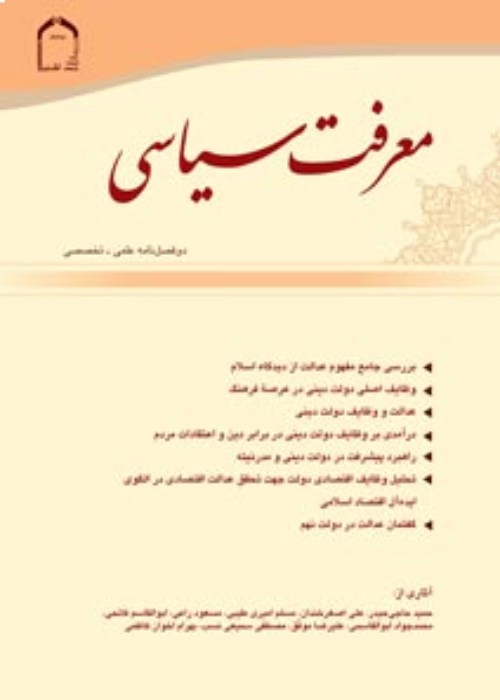An In-Depth Analysis of the Identity Crisis Resolution Patterns and its Adaptation to the Contemporary Afghanistan
Author(s):
Abstract:
This paper study and analyze "the identity crisis resolution patterns and its adaptation to the contemporary Afghanistan." Afghanistan is a multicultural country, which has been involved in devastating wars for almost three decades. Without denying the role of external interventions, this paper discusses the causes, factors and the main solutions to this long-standing war in the Afghan society, and linked it to the "national identity crisis". There are two theoretical models to solve the identity crisis, which include multiculturalism and homogenization. Given the failure of the unified model of identity crisis resolution in multicultural countries, the multicultural model for solving this problem seems to be more efficient in these countries than the previous pattern. Of course, the success of this pattern depends on the proper use of the cultural capacities of the Afghan community itself, which must be formulated and localized in accordance with the ethnic-cultural criteria and the objective needs and vital necessities of this society. In this regard, genuine religious concepts such as human equality, ethnic-cultural diversity, human dignity and social justice can be taken into consideration.
Keywords:
Language:
Persian
Published:
Journal of Political science, Volume:10 Issue: 1, 2019
Pages:
89 to 112
magiran.com/p1935260
دانلود و مطالعه متن این مقاله با یکی از روشهای زیر امکان پذیر است:
اشتراک شخصی
با عضویت و پرداخت آنلاین حق اشتراک یکساله به مبلغ 1,390,000ريال میتوانید 70 عنوان مطلب دانلود کنید!
اشتراک سازمانی
به کتابخانه دانشگاه یا محل کار خود پیشنهاد کنید تا اشتراک سازمانی این پایگاه را برای دسترسی نامحدود همه کاربران به متن مطالب تهیه نمایند!
توجه!
- حق عضویت دریافتی صرف حمایت از نشریات عضو و نگهداری، تکمیل و توسعه مگیران میشود.
- پرداخت حق اشتراک و دانلود مقالات اجازه بازنشر آن در سایر رسانههای چاپی و دیجیتال را به کاربر نمیدهد.
In order to view content subscription is required
Personal subscription
Subscribe magiran.com for 70 € euros via PayPal and download 70 articles during a year.
Organization subscription
Please contact us to subscribe your university or library for unlimited access!


